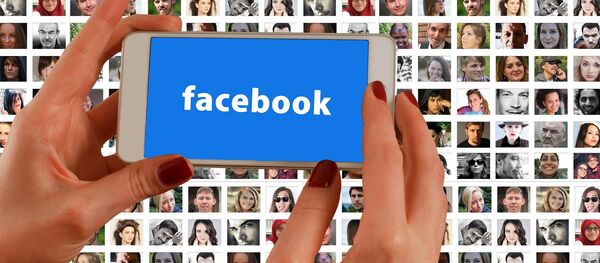Data suggests 27 percent of all internet users reside in countries where people can be arrested for publishing, sharing, or even merely "liking" content on Facebook. Authorities in 38 countries made arrests based on social media posts over 2016 — by contrast, people were arrested for content published on news sites or blogs in 21 countries.
Facebookers in Palestine are perhaps the people who need to think most carefully before they post. Between 2015 and 2016, Israeli authorities arrested over 400 Palestinians between 2015 and 2016 because of content they circulated online. Some posted inflammatory remarks, others merely shared news stories. A cursory glance at Facebook's official Requests Report for Israel shows the company responded positively to over 70 percent of the government's 432 requests for user data between January and June 2016 alone. By comparison, Facebook responded positively to just 16 percent of the Jordanian government's (25) requests.
While some cases didn't proceed to court, around 200 remain embroiled in legal proceedings as of April 2017. A particularly notorious instance is Palestinian poet Dareen Tatour, who faces an eight year prison term for posting a poem on her Facebook page in 2015.
The trial of poet Dareen Tatour will resume in Nazareth this Thursday, 27 April. #FreeDareen pic.twitter.com/cwtFxApsuZ
— English PEN (@englishpen) April 24, 2017
Still, Facebook's role in Israeli actions against the Palestinian people goes far further. In September 2016, Facebook signed an official agreement with Israel to crack down on "online incitement" by Palestinians — alerting officials to and removing questionable content.
While Facebook theoretically has autonomy over which posts are removed, Israeli Justice Minister Ayelet Shaked has said within the first four months of the agreement's operation, Facebook granted 95 percent of the 158 requests the government submitted to the company.
Facebook has also shut down down Facebook pages upon request. In September 2016, the personal Facebook accounts of four editors from the Shehab News Agency and three editors from the Quds News Network were disabled without explanation. In March, the network temporarily closed the official page of Palestinian party Fatah after it shared an old photo of former leader Yasser Arafat holding a rifle.
Under Israel pressure, Facebook reportedly closed down #Palestine Fatah page for containing Arafat photo grasping a riffle. #svpol #HR4all pic.twitter.com/Dr9SyREHny
— Prof Ferrada de Noli (@ProfessorsBlogg) March 1, 2017
In a sense, Facebook can't be blamed — the international social media giant is merely acting in compliance with Israeli law on online incitement. Nonetheless, the company's crackdown on seditious content in its pages is seemingly directed in one direction — Palestine.
A report published by The Arab Center for Social Media Advancement (7amleh) details how Israelis posted highly incendiary content about Palestinians 675,000 times in 2016 (or, every 46 seconds) on social media without censure. Examples included "rape all Arabs and throw them in the sea," and "a morning with lots of energy to slaughter Arabs."
It's not merely citizens responsible for the deluge — in 2014, the aforementioned Shaked posted a Facebook status suggesting the mothers of Palestinian fighters should be killed and their homes destroyed. No action was taken against her by Facebook — or the Netanyahu government.
FB post from the Ayelet Shaked who wants Facebook to censor peace activists for "incitement" https://t.co/TDUwhs14Z9 pic.twitter.com/GBbkFyMtzD
— (((Pat Hilsman))) (@PatrickHilsman) September 15, 2016
Palestinian politicians, both inside the occupied territories and Israel itself, are common targets for abuse by Israelis.
Knesset member Haneen Zoabi bore the brunt of the abuse in 2016, attracting 60,000 posts, ranging from insults to death threats. Her parliamentary colleague Ahmed Tibi was the subject of 40,000 posts, closely followed by Palestinian President Mahmoud Abbas with 30,000 and Ayman Odeh with 25,000. Basil Ghattas was verbally abused in 15,000, and Abnaa Sakhnin Football Club was singled out in 14,000.
It appears unlikely Facebook will end its collaboration with Israel — after all, the network is entering similar agreements with other countries, including Germany, to combat the spread of hate speech and "fake news" via its platform.
Nonetheless, the company could, as a coalition of 70 US social and racial justice organizations urged in January adopt reforms that would better target abusive content and harassment while ceasing to censor political speech.
The collective was moved to contact Facebook as activists in the Movement for Black Lives have routinely reported the takedown of images of protests, with the justification that it violates Facebook's Community Standards — while simultaneously, harassment and threats directed at activists based on their race, religion, and sexual orientation "thrives" on Facebook. Many activists have reported harassment and threats by users and pages on Facebook only to be told that they don't violate Facebook's Community Standards.
Censorship on Facebook is not a minor issue — as the case of Korryn Gaines demonstrates, it can literally be a matter of life and death.
In 2016, the Baltimore woman live-streamed her standoff with police, only for Facebook to end the video at the request of law enforcement. She was subsequently killed.






